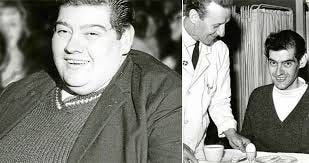Basic Fasting
A Simple Way to Improve Insulin Sensitivity
I really enjoyed this video that Dr. Jason Fung did on Fasting basics.1 Here is what he said that made so much sense.
First he answers what fasting is, comparing it to starvation. From the transcript:
The key word here is voluntary, you're always in control when you fast. What it means is that there's food available, but you choose not to eat it and the reasons are up to you.
Starvation, on the other hand is when you don't know when food is going to be available. That's not what fasting is. ..
You're always in control of this process. You can start fasting at any time. You can stop fasting at any time. If you don't feel well you can stop. If you do feel well you can start. You can do more or less. It's always voluntary and that's the key difference between fasting and starvation.
He explains in the next part, when to fast and different types of fasts:
So you can fast once a year, you can do it once a month, once a week or even every day and how long you fast for is completely up to you. You could just fast from dinner until breakfast the next day that's 12 or 14 hours. You could go to 16 hours which is called time restricted eating. You could go to 24 hours, like a one meal a day schedule, or you can do multiple day fasts. The world record for fasting is 382 days so there's really no upper limit to fasting.
Side note from wikipedia on the world record of fasting:
Angus Barbieri (1938 or 1939 – 7 September 1990) was a Scottish man who fasted for 382 days, from 14 June 1965 to 30 June 1966. He subsisted on tea, coffee, sparkling water, and vitamins while living at home in Tayport, Scotland and frequently visiting Maryfield Hospital for medical evaluation. He lost 276 pounds (125 kg) and set a record for the length of a fast.
Finally, depending on your commitment to fasting, you may see improvements in a variety of health issues:
It's a great way to lose weight, after all if you don't eat, you're going to lose weight. But there's a lot of other health benefits to fasting. You can reverse your type 2 diabetes… If you don't eat your blood sugars will fall, and that's going to let you manage your blood sugars without taking medications.. If you reduce your weight and reverse your type 2 diabetes, that's going to put you at far less risk of all types of diseases like heart disease, stroke, cancer, and these are the biggest problems that we face in health today…
Lots of people feel better when they're fasting. That's why people often say it's a cleansing period or a detoxification. ..People feel that they have more energy when they're fasting, and they feel that they can think more clearly. ..There's good reasons why that might be. There's also other more practical reasons, it's a way to save time, it's a way to save money, it's a way to simplify your life.
Stick around, there will be more posts on fasting. I am currently doing one meal a day on most days. I had to take a short break because I was working on a roof, and that is not a good place to be if you ever feel dizzy, which can happen when you are on a fast.
Thanks for reading!
Disclaimer: Fasting is probably not recommended for people who are underweight or pregnant. If you are diabetic you may need to adjust your medications. If you are on any medication you may need to adjust your medications. This might be a good thing to notice that as you fast you may find that you don’t need as much medication and longer term you may be able to ditch all of your medications. This is why it is no surprise that the medical community is not so hot on the topic.








I have been intermittent fasting from fall 2020...lost 30 lbs by sticking to a high protein low carb (no bread, etc), never hungry...mostly 18 -20 hrs after 4 30 or 5 pm till 12/12 30 pm...not a problem...fats burn off after the 12 hours of digestion.
I went off BP meds...
NOW, I seem to have added a bit more sugar(wine!), and w visitors, at home and away, have gained a couple of pounds. Workout 3 x a week and walk as often as I can outside of indoors. 😊
This is the health program the enemy does NOT want us to know!
There is a great documentary on Rumble - THE SCIENCE OF FASTING that beautifully explains, well, the science of what fasting does for the body and how the body reacts and benefits.
Thanks for the article.